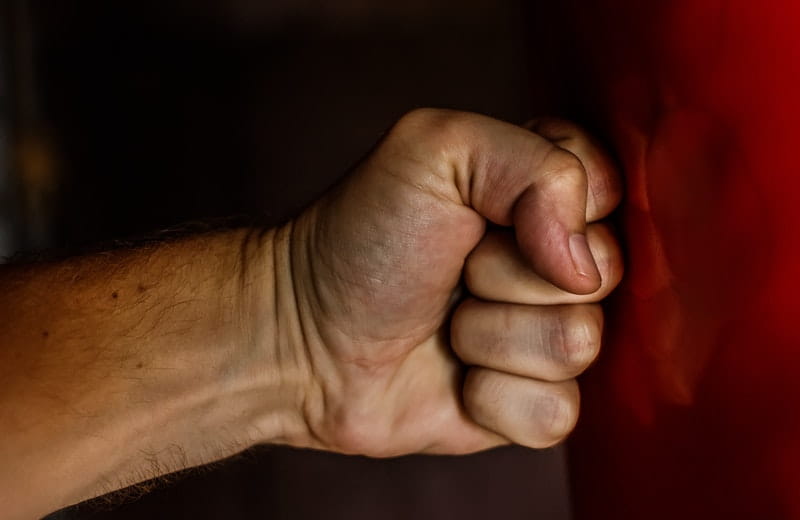We’re all familiar with that uncomfortable trip to the bathroom. It can be an unpleasant and sometimes painful experience.
You may have changed your eating habits in a way that your digestive tract disagrees with. It can also be caused by dehydration or an inactive lifestyle. Some types of medications can be the culprit. Each person’s body reacts differently depending on a number of factors. Genetics, lifestyle and diet are some of the things that differ depending on the person.

1. Irregular Bowel Movements
There is a lot of variation in the frequency of different people’s bowel movements. An individual’s body chemistry, lifestyle and eating habits can all affect how often they need to go to the bathroom. Some people may go several times each day. Others may have a bowel movement every two days or so.
An irregular interval between bowel movements is a sign that something is wrong. It’s likely that you have constipation if you don’t have at least three bowel movements a week. After three days the stool in the intestines can become harder and more difficult to pass, resulting in a denser fecal matter that can cause blockage.
2. Hard Stools
Hard stools are the signature sign of constipation. A blockage in the large intestines can cause the movement of waste in the body to slow down and become dense and compacted. This results in difficult bowel movements.
One cause of hard fecal matter is a lack of fiber in your diet or a high intake of lactose from dairy products. One of the best things you can do when you first experience constipation is to try increasing your fiber intake and limit the amount of dairy you eat. Drinking water can also help by flushing food more quickly through the body and giving the intestines time to absorb the fluids.
3. Straining to Have Bowel Movements
Hard stool can make make it difficult to have a comfortable bowel movement. If you find that you have to strain too much to pass your stool, you probably have constipation. While it’s important to complete your bowel movements, take care not to strain too hard. Doing so can create tearing and bleeding, resulting in more trouble.
Take your time and strain in intervals to avoid damaging your body. If you find that it’s just impossible at the moment and feel you can wait a while, take the time later to make a second trip to the bathroom after moving around some more and drinking some liquids to help loosen things up.
4. Rectum Blockage
As waste builds up in the intestines over a period of several days, it becomes compacted and has a high chance of creating blockage within the rectum. This obstruction can cause pain during bowel movements and make it difficult to expel the waste.
If this makes it seem impossible to complete a bowel movement, it may be necessary to take medication to soften the stool. If the problem persists for several days or the pain is constant, seek the help of a medical professional to help prevent further damage.
A good way to help reduce the chance of blockage is to always go to the bathroom when you feel the urge. Never consider yourself too busy to go to use the restroom. Doing so will help prevent constipation from occurring.
5. Dehydration
Extended an duration of dehydration can lead to constipation. When your body doesn’t have enough fluid to flush the toxins from your body stool can become overly dry and compacted within the intestines. Not only does dehydration cause constipation, it can lead to many problems within the body which can become more severe over time.
If you find that you’re constipated the easiest thing you can do right away to help fix the problem is to drink more water. Allow your body time to use the extra fluids to remove waste products from the body. Drinking enough water each day is one of the best ways to promote total body health and help fight off the problems that can arise from constipation.
6. Passing Fewer Than 3 Stools a Week
When you go without passing a stool for several days the waste builds up in your intestines, becoming more compacted the longer the interval is between bowel movements. As stated earlier, the recommended length of time in-between bowel movements for the average healthy person is at least three times a week. Once a day would be ideal, but not everyone has the same body and lifestyle.
Remember that passing fewer than three stools each week can be one of the signs of constipation, but could also be a sign of something more severe. If you experience pain or have other current medical considerations, you may want to consult a doctor before assuming that you’re just constipated.
7. Feeling of Blockage in Intestine
Having a feeling of blockage in intestines doesn’t necessarily only happen when you’re having a bowel movement. It can originate as a dull ache or tightness in the lower abdomen before you’re even aware that you’re constipated.
When you experience these first signs of potential constipation it may be a good idea to drink some water. Doing so during the day before a bowel movement is imminent can help loosen up the blockage and make a normal bowel movement more likely. Giving the body time to process the water can be helpful in lessening the likelihood of constipation. As always, seriously consider seeing a doctor if you experience sharp, continuous pain over an extended period of time.